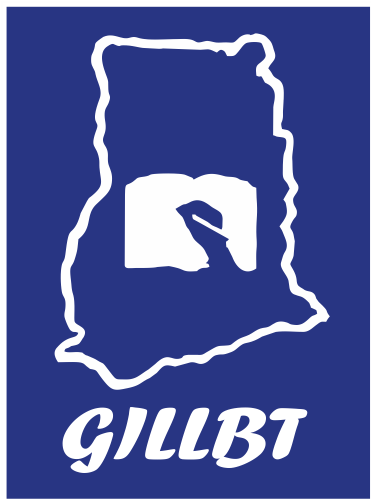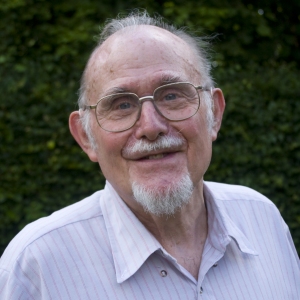Odupon Atutu (A mighty Tree is Fallen), an Akan/Ashanti phrase announcing the death of kings, nobility and the great–was the only phrase I could think of after the phone conversation the evening of January 6 in which I was informed of the death of GILLBT Founder Dr John Bendor-Samuel.
In reflecting upon his life, and an appropriate tribute to him, this phrase provides the most relevant conceptual foundation upon which to do so. This is because, first,JBS devoted his academic training—an MA in History from Oxford University and a Phd in Linguistics from London University—to the study and development of African languages. Among numerous contributions, he edited The Niger-Congo Languages, a state of the art handbook covering two-thirds of the languages spoken in Sub-Sahara Africa. He served as the Editor of the Journal of West African Languages from 1982-94, and has since 1965 been a member of the Council of the West Africa Linguistic Society. It is only fitting, therefore, that I announce his death, and begin the tribute to him, in an African language!
But second, and most important, JBS remains a ‘mighty tree’ because of his pioneering and towering contributions to Bible Translation in Africa, and beyond. Beginning in Ghana in 1961, he pioneered and steered the work of SIL and Wycliffe Bible translators (WBT) in Africa for half a century. He also served as the Africa Area Director of WBT, and Wycliffe International. As Micah Amukobole, the founding Director of the Kenya Bible Translation and Literacy (BTL) puts it, JBS “…opened up the continent of Africa. He traversed every corner of this continent. He was the Mr Wycliffe in Africa”! To Karen Floor, the Director of Wycliffe South Africa: “This year, 2011, marks the 50th anniversary of the work and vision of Wycliffe and SIL in Africa – an apt reminder of the legacy John Bendor-Samuel leaves”. At the time of his death, he was building an archive on, and writing the history of, this work in Africa. He certainly was the mightiest tree in the forest of Bible translation and language development in Africa!
But his contributions and legacy went beyond Africa. As Freddy Boswell, the Executive Director of SIL International argues: “Few people have impacted global language development and Bible translation over the last half century as did Dr. John Bendor-Samuel.” Starting his work in Peru and Brazil, JBS was the founder of Wycliffe UK, and held leading positions within the global Bible Translation and Language Development movement. These included, among others, Executive Vice President of SIL International, the CEO of Wyclife Bible Translators (WBT), the President of Wycliffe Bible Translators International (WBTI), and co-founder of the International Forum of Bible Agencies (FOBA). Simply put, JBS “was a towering figure on the international mission scene,”— as Eddie Arthur, the director of Wycliffe UK asserts.
For us at GILLBT, however, our relationship to JBS is simple, straightforward and unproblematic: He was our “Founder”, and we were the “First born’ in his Ministry in Africa. He it was who came to Ghana in 1961 and worked out a cooperative agreement between SIL and the Institute of African Studies at the University of Ghana that established us. He it was who developed the close relations with Ghanaian visionary Christians like John Agama, William (Paa Willie) Ofori Atta, Gottfried OseiMensah, and others,that ensured our credibility with the Ghanaian church. And through the years he has played critical and varying roles to support our development.
Before, and since taking over as Director, I have been in communication with him, and I can confirm that he has remained one of our ardent supporters. He closely monitored developments at GILLBT, and was particularly happy with the transition to, and make up of, the Board, seeing it as an effective strategy to achieve Ghanaian ownership of GILLBT’s work. He affirmed our plans to deepen our relations with the University of Ghana, and had recently sent me a copy of the original agreement signed by SIL and the Institute of African Studies establishing GILLBT. And he wanted us to quickly fulfil our vision to be a ‘sending’ organisation. He consistently gave me feedback on my weekly Admin memo write ups.
In our latest communication, I had asked him to be part of a group that will plan GILLBT’s 50th anniversary celebrations in 2012. In his characteristic servant-leadership modesty, he had responded in an email on November 5, 2010:
“It would be a pleasure to participate and I’m willing for you to include me in the planning process, though I am not sure I have much to contribute.”
Certainly his contribution to the planning would have been immense, not least the legitimacy his mere participation and presence would have brought to the process!
In Akan/Ashanti cosmology, there is concern about “fallen mighty trees” being replaced by inconsequential ones, hence the proverb:“Odupon tutu a boferenaesinanan, (lit.: when a mighty tree falls, it is replaced by pawpaw trees”). This is certainly a legitimate concern here, as it is impossible to replace JBS. Fortunately, we don’t need to replace him! Fifty years after his pioneering work in Ghana, and Africa, what is needed is not another mighty tree like him. Rather, what we need is a flourishing forest in which “a thousand flowers bloom”. That is, a mass movement that will complete the task he began, and faithfully remained committed to. Practically what we need, and what JBS wanted to see, is a movement that will work towards true ownership, and embeddedness, of the task of language development and Bible translation in Ghana, and the African continent in general. Indeed, this vision of African ownership and leadership is what animated the mission of JBS in Africa until his death!
May the memory of his life, and work, be an inspiration as we strive towards this future!

